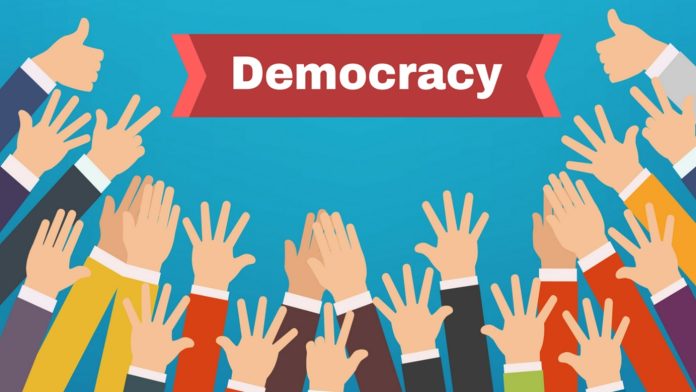- The very mention of Indian democracy floods images of several factors including the all-important electioneering adding colour, vibrancy, energy, and chutzpah to the often-mundane proceedings. Of course, we Indians are quite used to witnessing and being a part of one or the other form of elections throughout the country and around the year. The beauty of democracy is that the governments chosen are by the people, for the people, and of the people where citizens have a say as mandated in the Constitution. Thus, citizens are the real stakeholders in a democratic setup whose writ runs at every governance step. Or is it? However, the political class in India has established itself in such a manner that leaders literally hold greater sway. We know that.

PC: Government Executive
- As you are aware, the political parties are divided into a few national and several regional outfits representing different ideologies/philosophies. Needless to mention, the Indian political landscape is largely premised on the labyrinthine caste conundrum where assiduously cultivating vote banks is par for the course move. Let’s not forget the role essayed by independent candidates whose participation not only further adds to the intricacies of the political process but also opens up the contest for the less popular to compete with the established parties/leaders. Think about it, the contesting independents are not expected to make a serious effort at winning the contest but are bound to make a considerable dent into the prospects of others vis-à-vis winning margins.
- Note that the state assembly elections to some of the crucial states are already upon us and as such, a mere ten days to J&K’s first phase, 92 independent candidates are contesting for 14 seats, many quietly tagged friendly with the BJP. These party-unaffiliated fighters are always the most interesting, fighting for a variety of reasons – as proxies and party rebels, as revenge nominees, or just on personal fads, the legions of party spoilers. Regardless of what motivates their dive into impossible contests, they indeed pack a punch, although their winnability’s whittles since LS polls 1952, when 37 of 533 independents won. Voters sent to Parliament this LS election seven independents of 542 such contestants, three of whom were shock wins.

PC: Tech Policy Press
- All three – two from Punjab, one from Kashmir, and two of them contesting from jails in Delhi and Assam – are strong political brands all their own, a politics that makes establishment parties even queasy. Making parties and their candidates squirm, fret and sweat has been the independents’ primary role. As a deterrent, EC hiked deposit fees to Rs 25k from the paltry Rs 500 for an LS contest, and to Rs 10k for an assembly fight. Not that today’s independents balk at entry fees. Three of the richest 10 in J&K phase I are independents, all crorepatis, while the poorest two are also independents, with assets of Rs 5k and Rs 10k. How free are the independents, though, will be known only on Oct 8. Yes, independents too add colour to the democratic proceedings.






